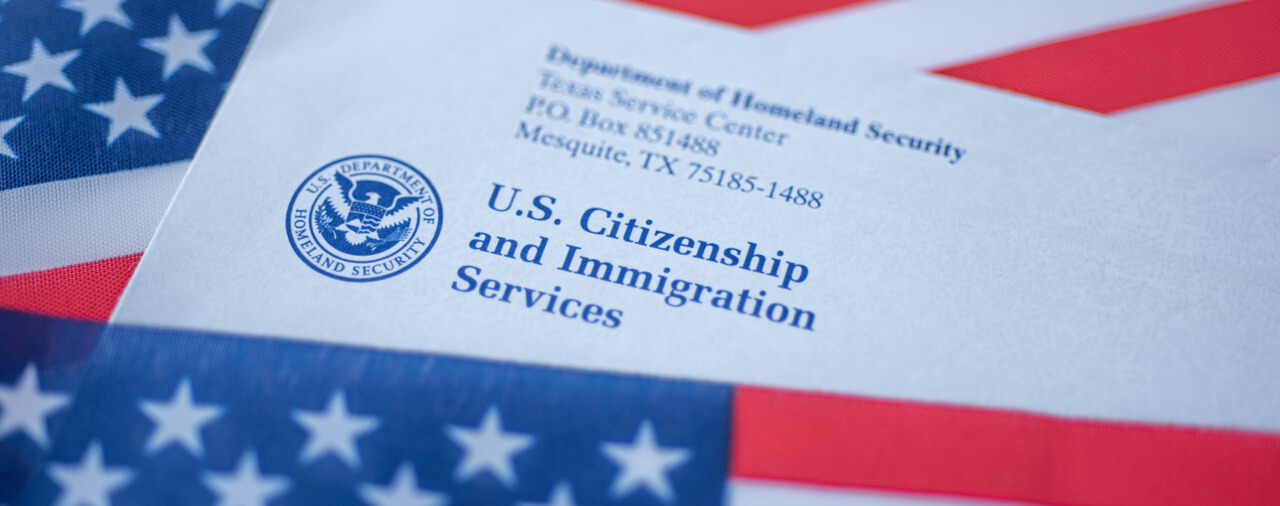Update
Update: The new fees were enjoined by a Federal judge on September 29, 2020. For the time being, the prior fees will remain in effect. Please see our blog on the injunction to learn more [see blog].
Introduction
On August 3, 2020, the United States Citizenship and Immigration Services (USCIS) published a new fee schedule in the Federal Register (FR) at 85 FR 46788 (Aug. 3, 2020) [link]. The USCIS published several minor technical corrections two weeks later at 85 FR 49941 (Aug. 17, 2020) [PDF version]. The USCIS explained [link] that, overall, the changes increase USCIS fees by a weighted average of 20%. In addition to increasing fees for many USCIS forms, the changes also eliminate fee waivers in certain categories and provide a small incentive for online filing of forms where both online filing and regular mail are options. The fee changes take effect on October 2, 2020. In this article, we will briefly examine the new USCIS fee schedule and rules for USCIS fee waivers.
New Non-Statutory Immigration Benefit Request Fees
Below, you will find the chart for the new USCIS fees for requests that do not have fees specified by statute. That is, the USCIS has discretion to decide the appropriate fees for the following requests. Please note that “current fee” refers to the fees before October 2, 2020, and “final fee” refers to the fees taking effect on October 2, 2020.
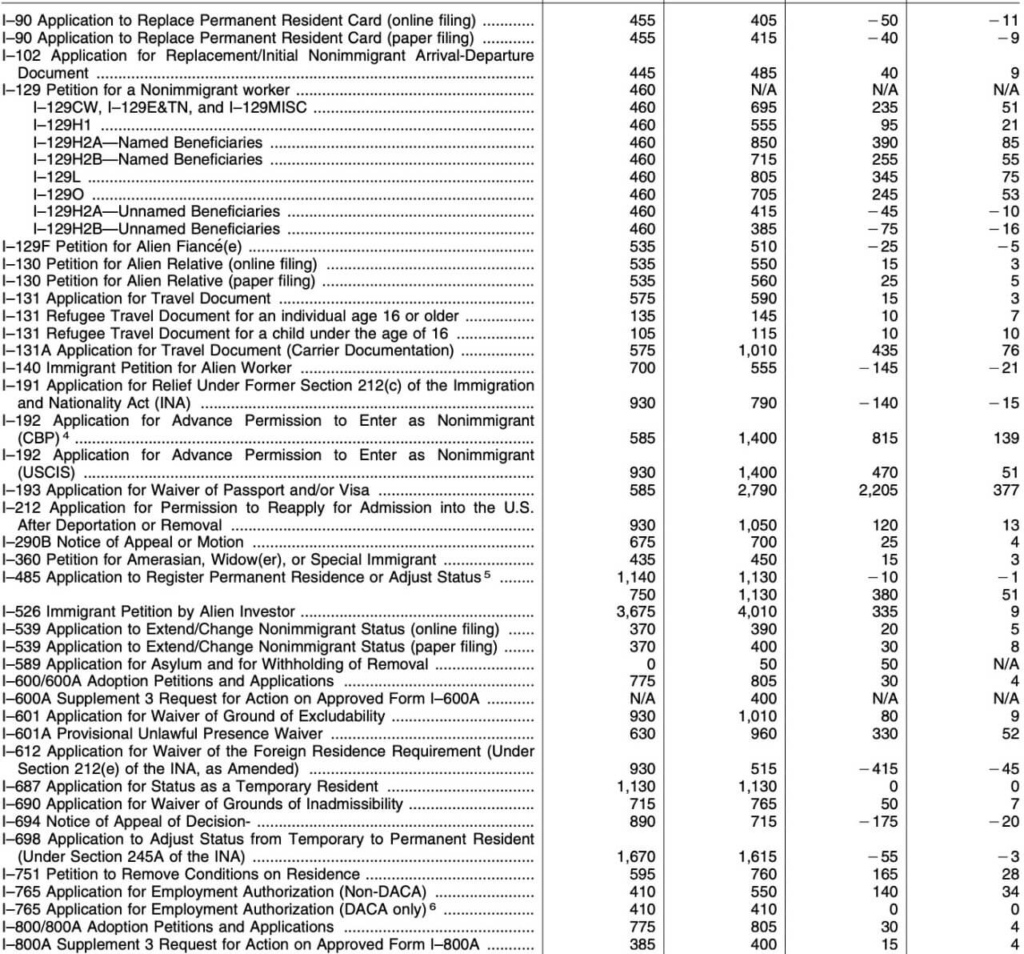

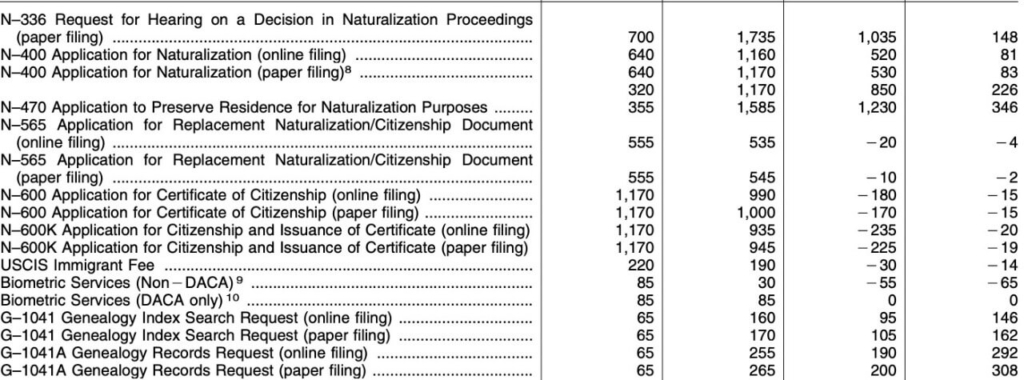
You will notice upon studying the chart that there is no uniform fee increase. Some categories are seeing substantial fee increases, while others have only slight increases or decreases. Petitioners seeking to bring nonimmigrant workers to the United States with the Form I-129 should note that the USCIS is establishing different fees for different Form I-129 requests.
Below, you will find a chart detailing the new Form I-129 fee structure:
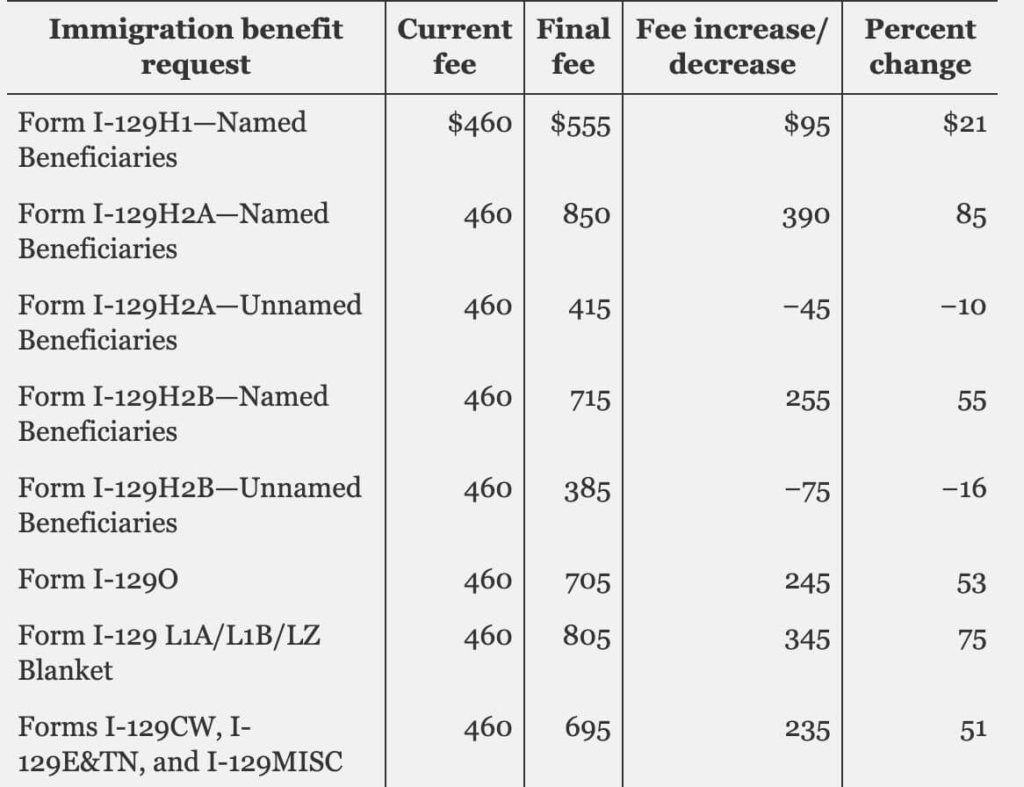
$10 Discount For Online Filing Certain Forms
The USCIS seeks to encourage applicants who have online and paper mailing options to file their forms online. Accordingly, when the new rule takes effect the USCIS is charging $10 less for online filing for certain forms where both online and paper filing options are available. Below, you will find the chart with the affected forms.
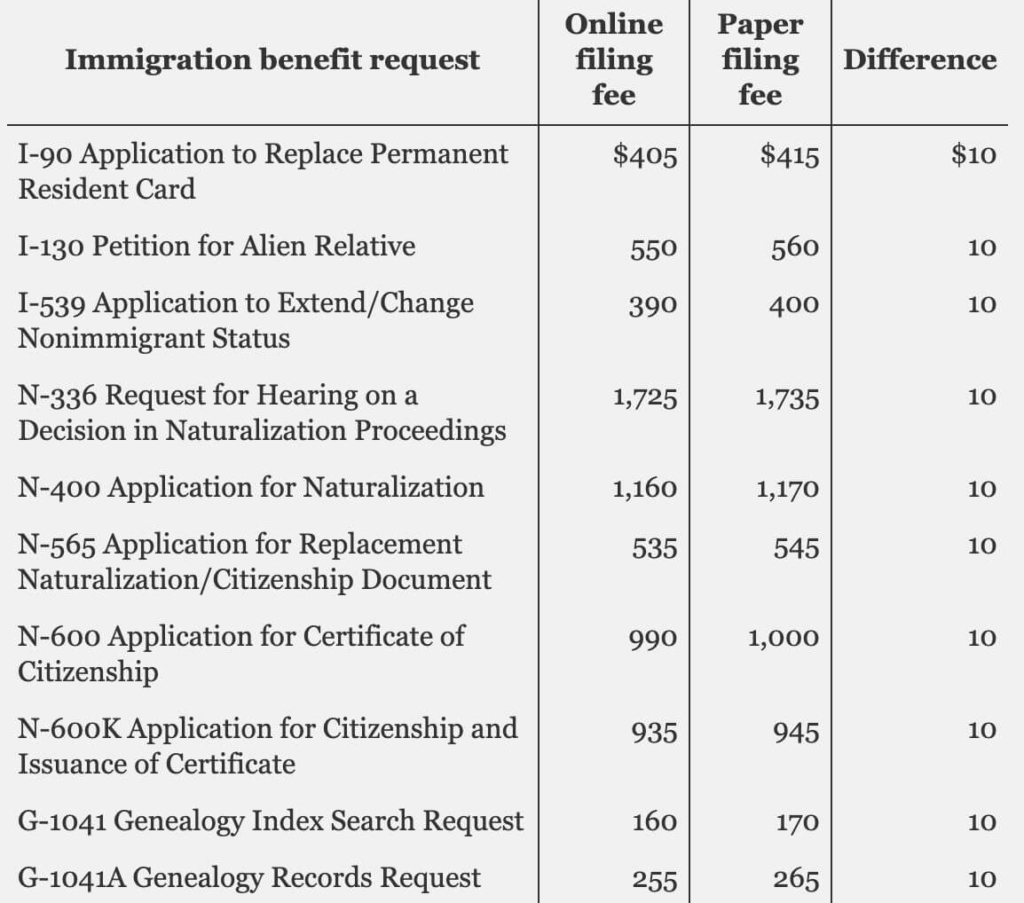
Filing Fee Exemptions
The new rule limits the circumstances in which filing fee exemptions will be available. Most notably, in most cases starting on October 2, 2020, the Form I-485 fee will not encompass processing of the Form I-765 and Form I-131. Below, you will find a complete list of the filing fee exemptions under the new fee rules:
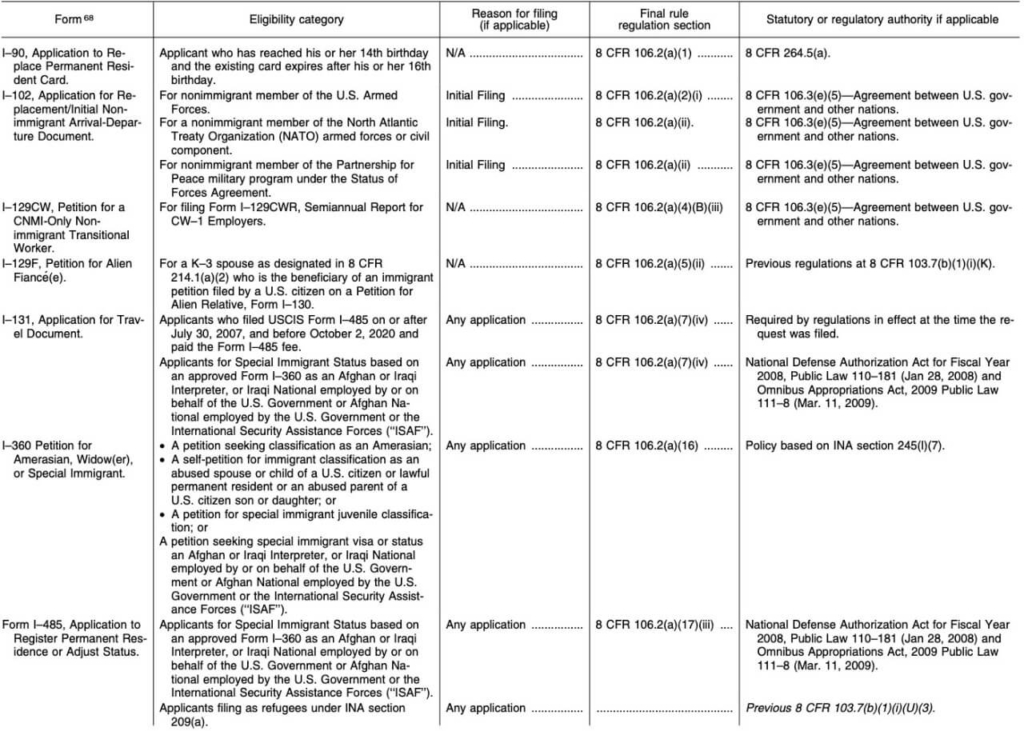
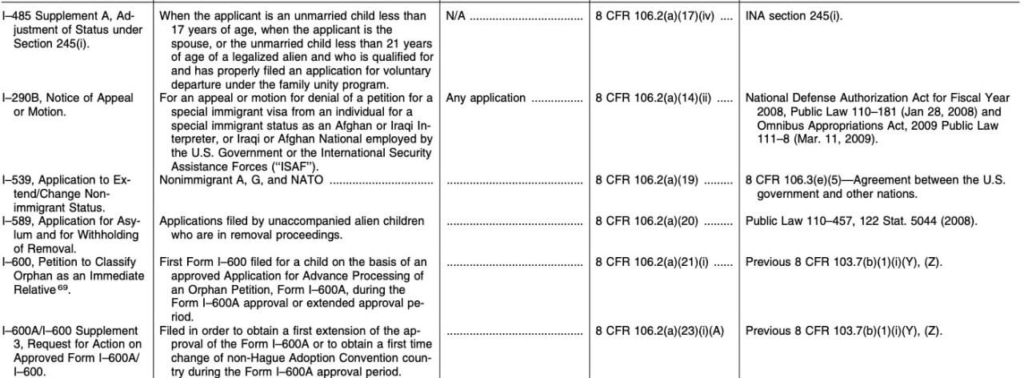
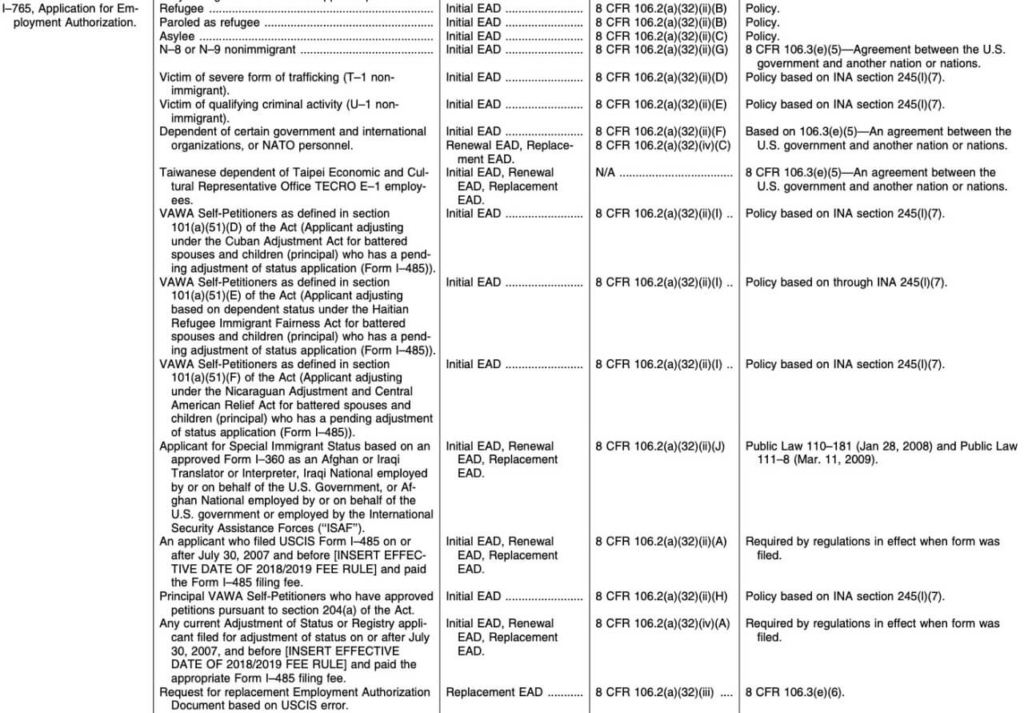

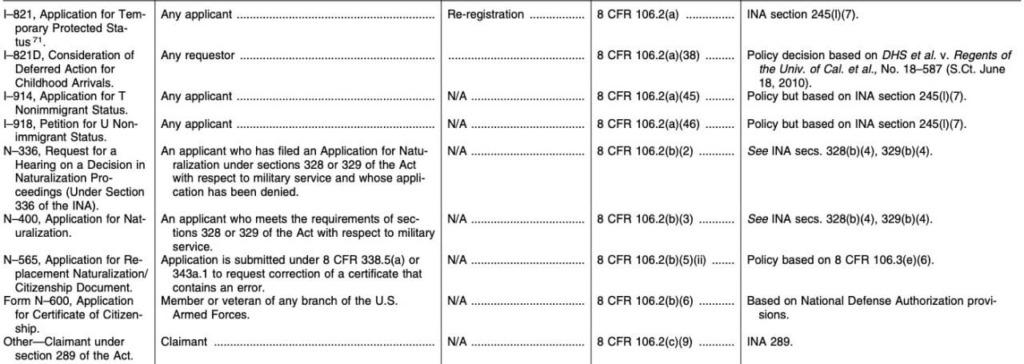
New Limitations on Fee Waivers
Under the new fee rules, the USCIS is substantially limiting the categories in which fee waivers are permitted. Specifically, the USCIS is generally restricting fee waivers to only those categories for which fee waivers and exemptions are provided for by statute. The new fee waiver rules are set forth in new 8 C.F.R. 106.3 [link]. While we are covering the new fee waiver rules in a separate post [see article], we will provide a brief overview of some categories that will still be eligible for fee waivers and exceptions here.
First, those categories set forth in INA 245(l)(7) will still be permitted to apply for fee waivers. This includes VAWA self-petitioners (and derivatives thereof) and anyone otherwise petitioning due to battery or extreme cruelty under INA 204(a), T nonimmigrants, U nonimmigrants, battered spouses of A, G, E3, or H nonimmigrants, battered spouses or children of U.S. citizens or lawful permanent residents (see INA 204A(b)(2) special rule cancellation), and applicants for TPS (including initial applicants and those seeking re-registration). Furthermore, certain special immigrant juveniles who have been placed in out-of-home care under the supervision of a juvenile court or state child welfare agency at the time of filing and certain Afghans and Iraqis who worked for the U.S. Government or International Security Assistance Forces abroad may seek fee waivers. The above categories may also seek waivers on fees for the Form N-400, Form N-600, and Form N-600K, which are all associated with naturalization applications and related issuance of certificates of citizenship.
While most fee waivers for other requests are now foreclosed, 8 CFR 106.3(b) allows for certain exceptions in other cases if the Director of USCIS determines that extraordinary fee waivers should be available due to a major national disaster (declared under 44 CFR 206). However, these special waivers cannot apply to requests where the beneficiary is subject to the affidavit of support requirements under INA 213A or is already a sponsored immigrant, or is subject to the public charge inadmissibility ground under INA 212(a)(4).
Generally, no alien will be eligible for a fee waiver unless his or her annual gross household income is at or below 125 percent of the current Federal Poverty Guidelines.
In limited cases, the Director of USCIS may provide fee exemptions for asylees and refugees. The Director may also provide a limited fee waiver if doing so is in the national security interest of the United States. Fee exemptions may be accorded, as we noted, in certain cases due to a natural disaster. The USCIS may exempt fees in accordance with an agreement between the United States and a foreign nation. Finally, fees may be exempted if it is justified due to USCIS error.
Below, you will find a chart from USCIS detailing the categories that are generally eligible for fee waivers and the circumstances in which they may be applied for; and granted:
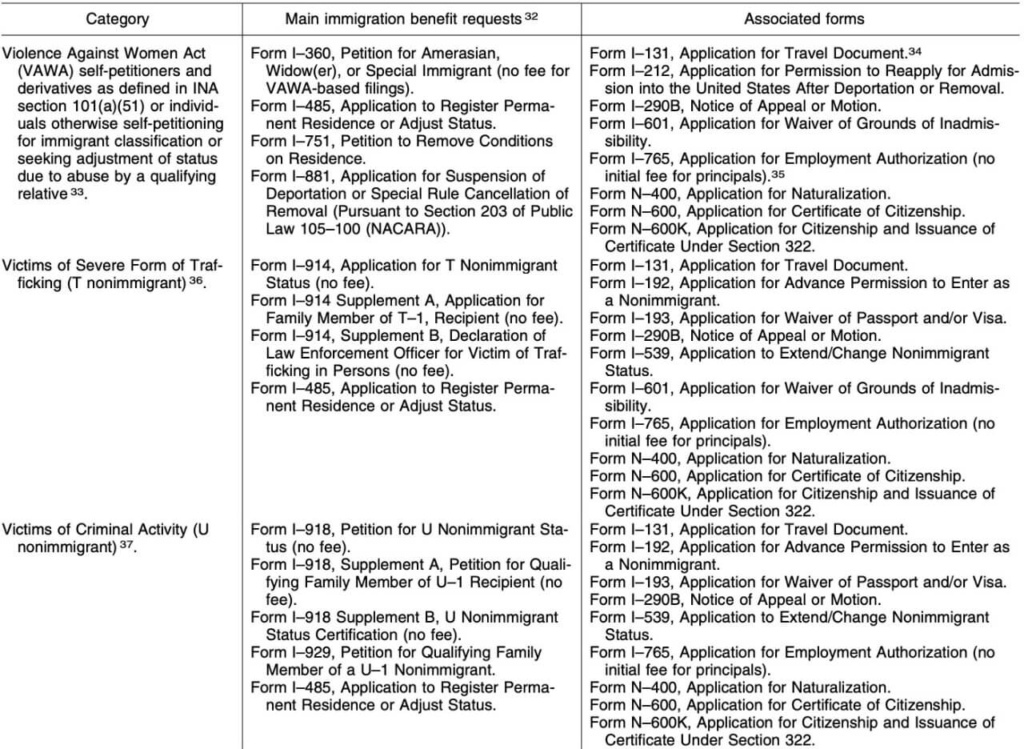
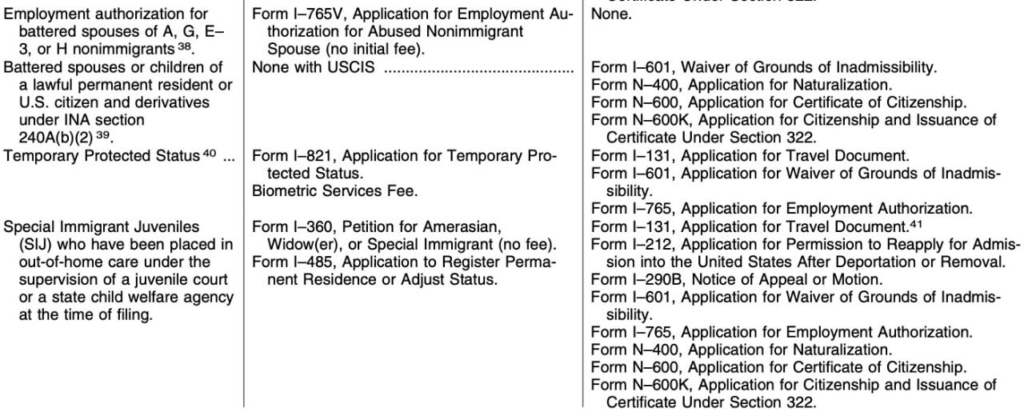

Conclusion
The USCIS’s general fee increases and limitations on fee waivers and exemptions will likely make it more difficult for certain applicants and petitioners to file forms with the USCIS. Furthermore, the new fees will be required for all new petitions and affected forms beginning on October 2, 2020. It will be necessary for anyone who will be filing forms that are subject to fee increases to prepare for the higher costs in advance. Applicants who may be eligible for a fee waiver or exemption may consult with an attorney, if they are working with one, for guidance on how to seek relief from the USCIS.
